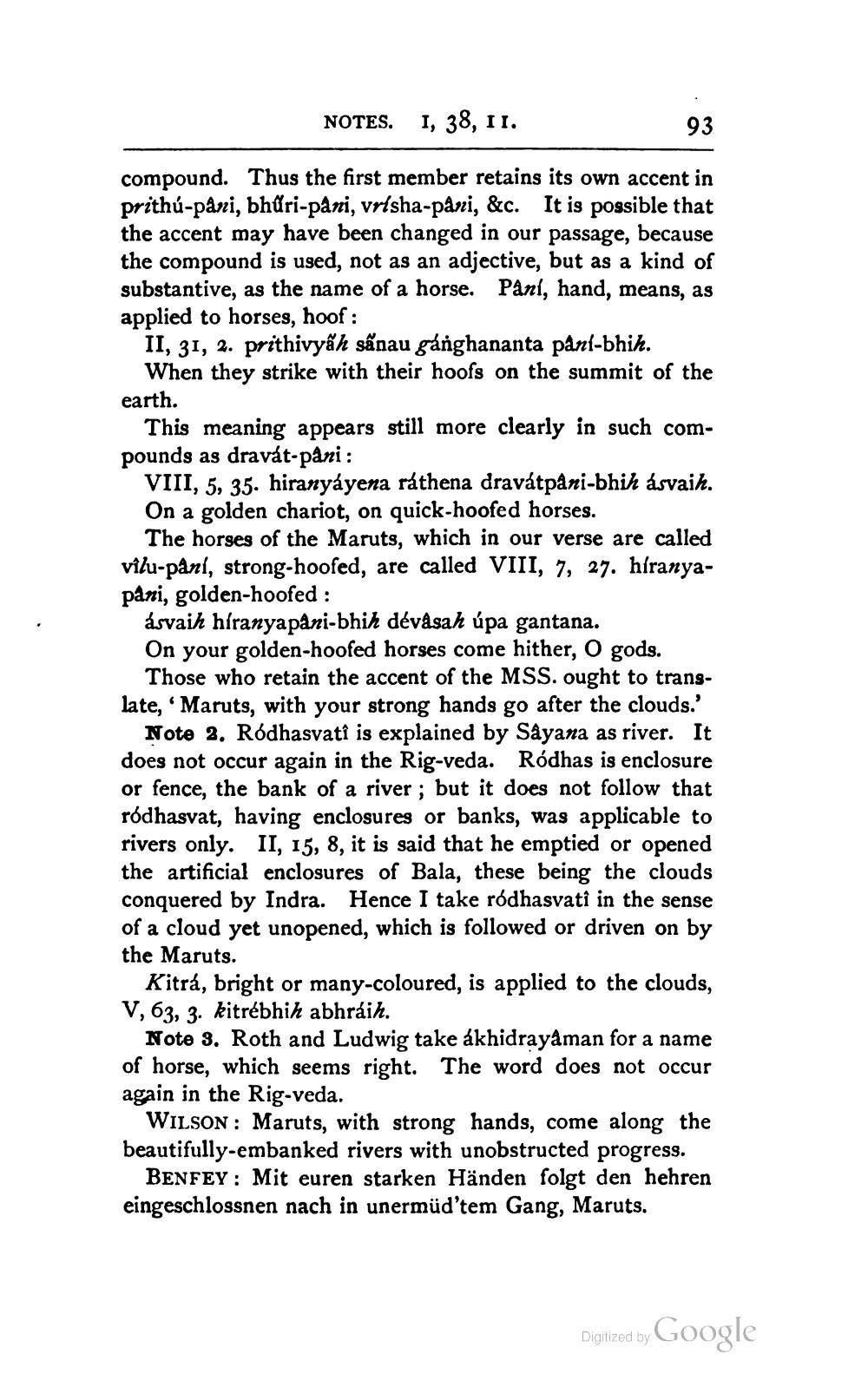________________
NOTES. 1, 38, 11.
93
compound. Thus the first member retains its own accent in prithú-pani, bhůri-pani, vrlsha-pâni, &c. It is possible that the accent may have been changed in our passage, because the compound is used, not as an adjective, but as a kind of substantive, as the name of a horse. Pani, hand, means, as applied to horses, hoof :
II, 31, 2. prithivyấh sãnau gárghananta panl-bhih.
When they strike with their hoofs on the summit of the earth.
This meaning appears still more clearly in such compounds as dravát-pani :
VIII, 5, 35. hiranyáyena ráthena dravátpani-bhih ásvaih. On a golden chariot, on quick-hoofed horses.
The horses of the Maruts, which in our verse are called vilu-pâni, strong-hoofed, are called VIII, 7, 27. híranyapani, golden-hoofed :
ásvaih híranyapani-bhih dévasah úpa gantana. On your golden-hoofed horses come hither, O gods.
Those who retain the accent of the MSS. ought to translate, 'Maruts, with your strong hands go after the clouds.'
Note 2. Ródhasvatî is explained by Sayana as river. It does not occur again in the Rig-veda. Ródhas is enclosure or fence, the bank of a river ; but it does not follow that ródhasvat, having enclosures or banks, was applicable to rivers only. II, 15, 8, it is said that he emptied or opened the artificial enclosures of Bala, these being the clouds conquered by Indra. Hence I take ródhasvati in the sense of a cloud yet unopened, which is followed or driven on by the Maruts.
Kitrá, bright or many-coloured, is applied to the clouds, V, 63, 3. kitrébhih abhráih.
Note 3. Roth and Ludwig take akhidrayaman for a name of horse, which seems right. The word does not occur again in the Rig-veda.
WILSON: Maruts, with strong hands, come along the beautifully-embanked rivers with unobstructed progress.
BENFEY : Mit euren starken Händen folgt den hehren eingeschlossnen nach in unermüd'tem Gang, Maruts.
Digitized by
Digitized by Google




